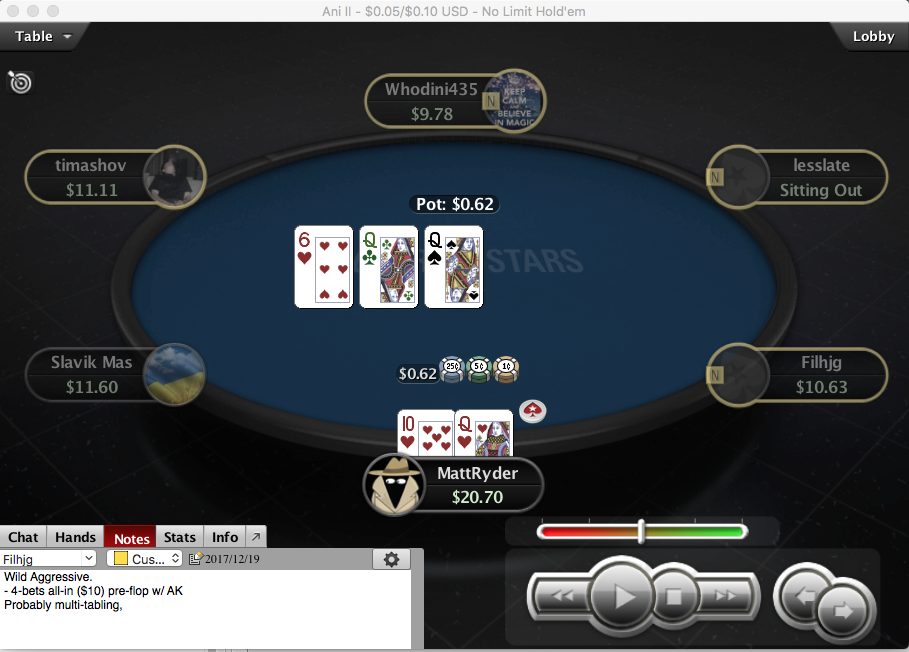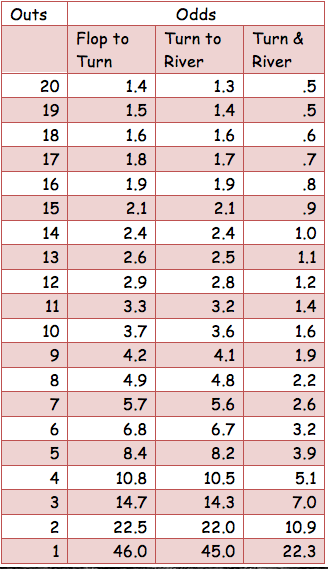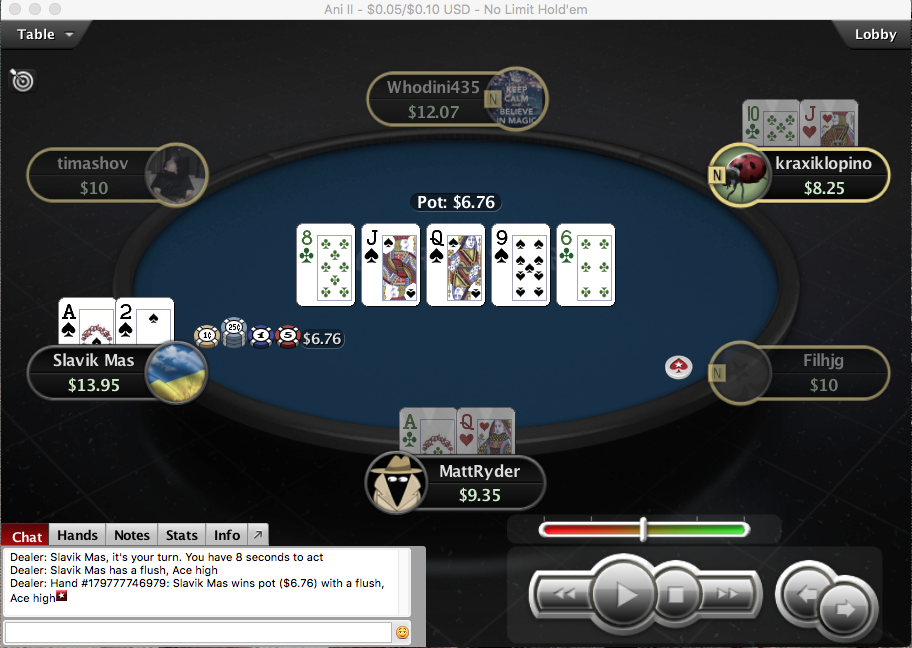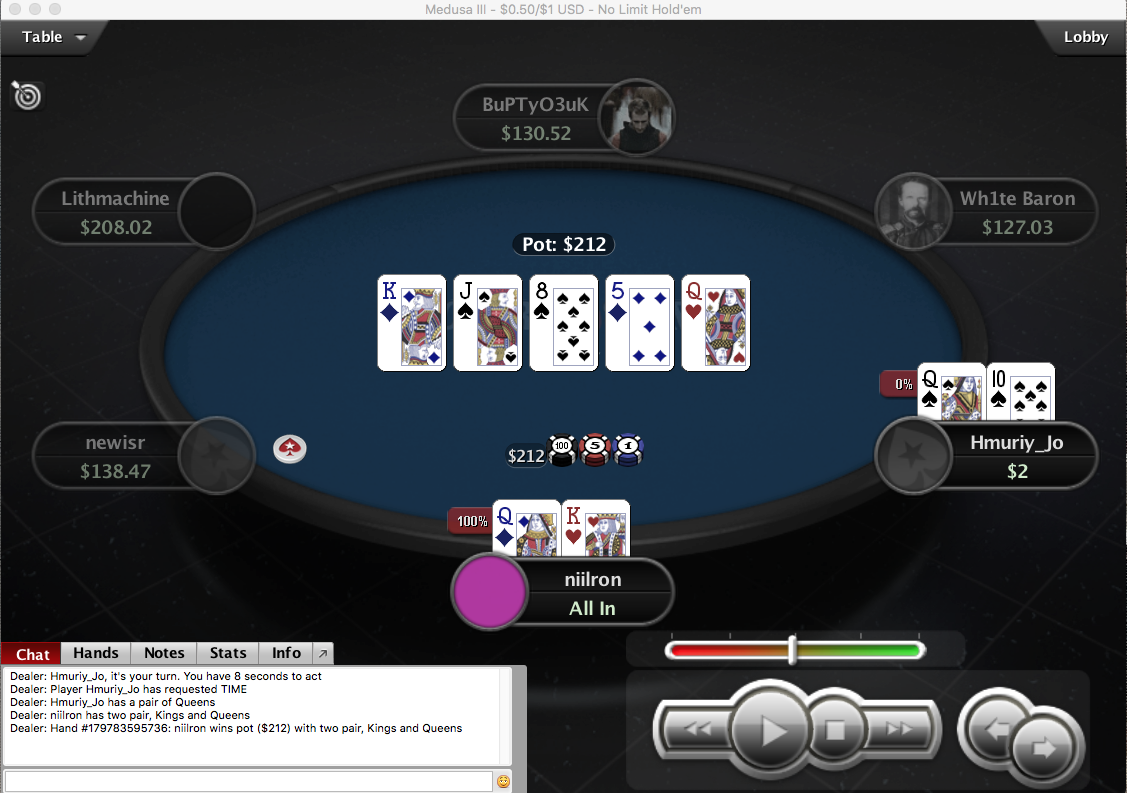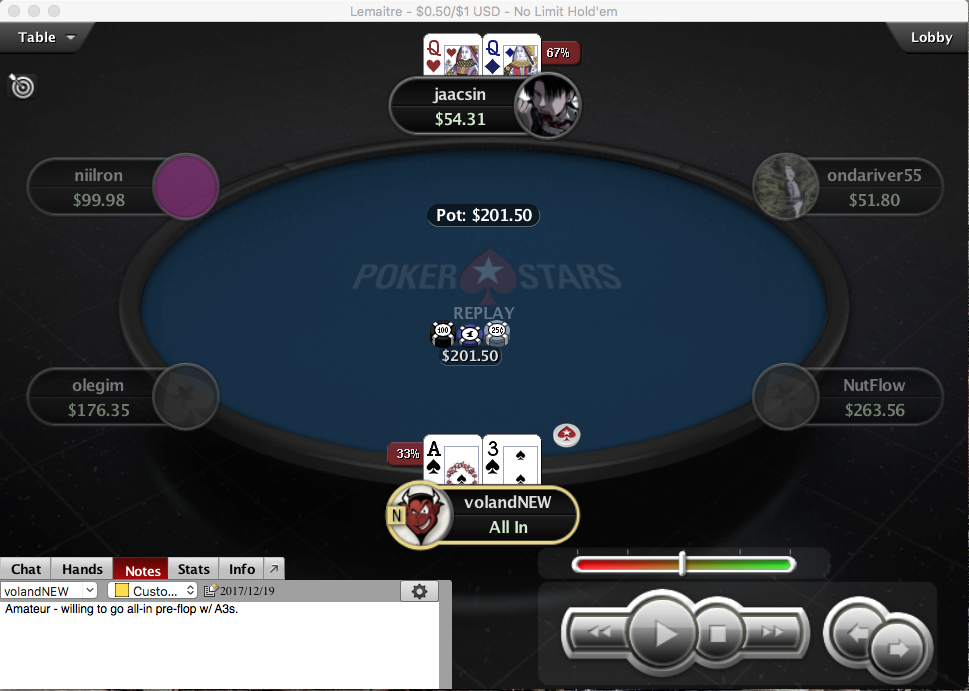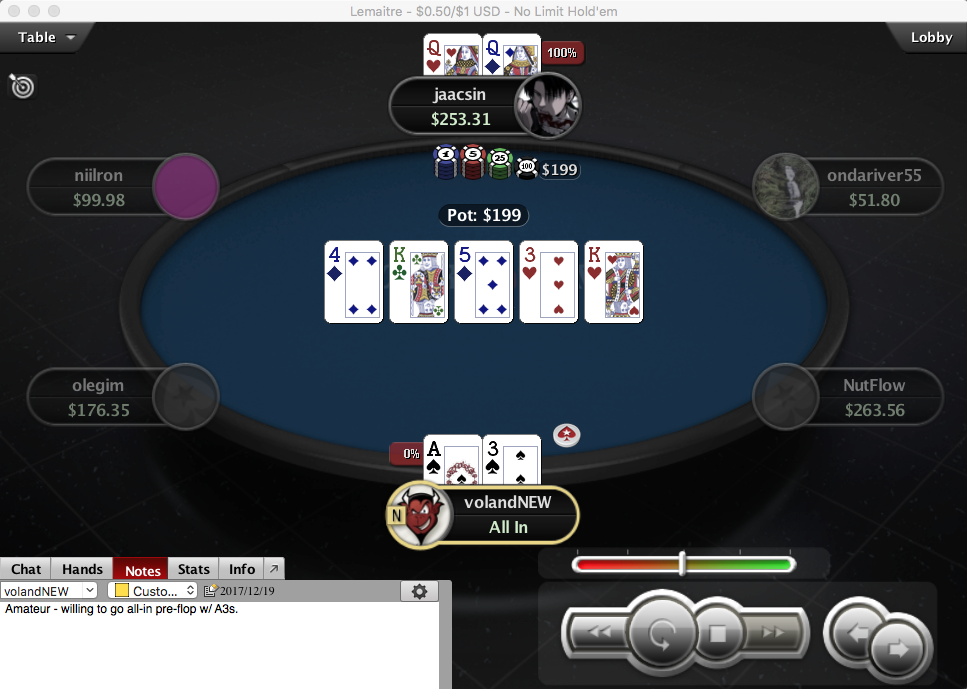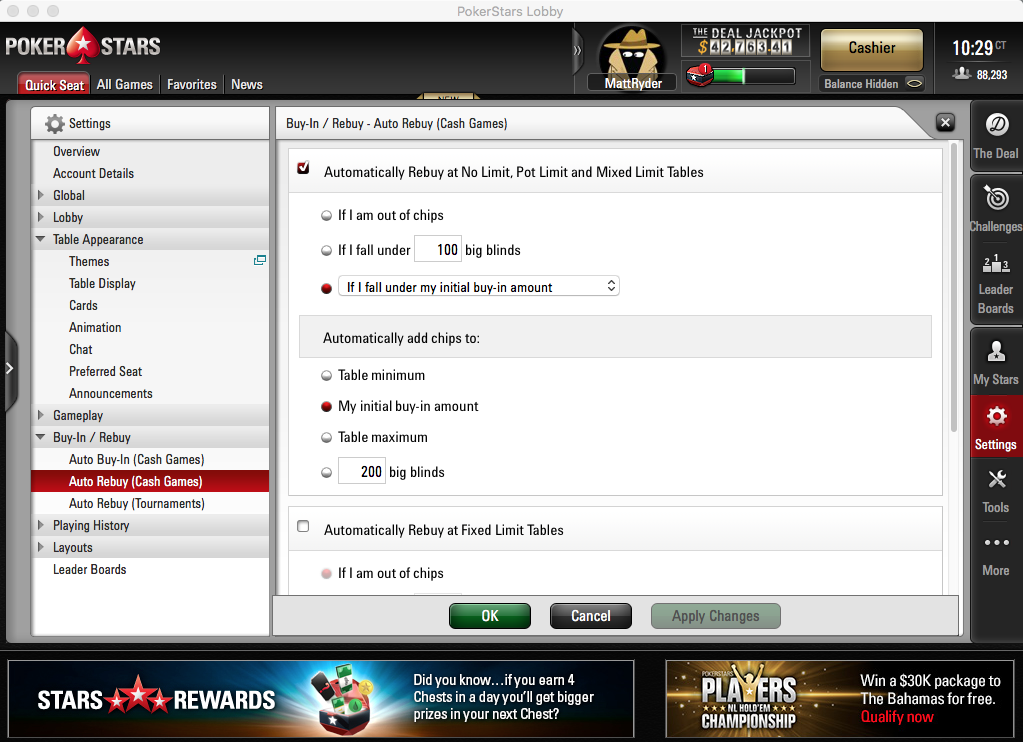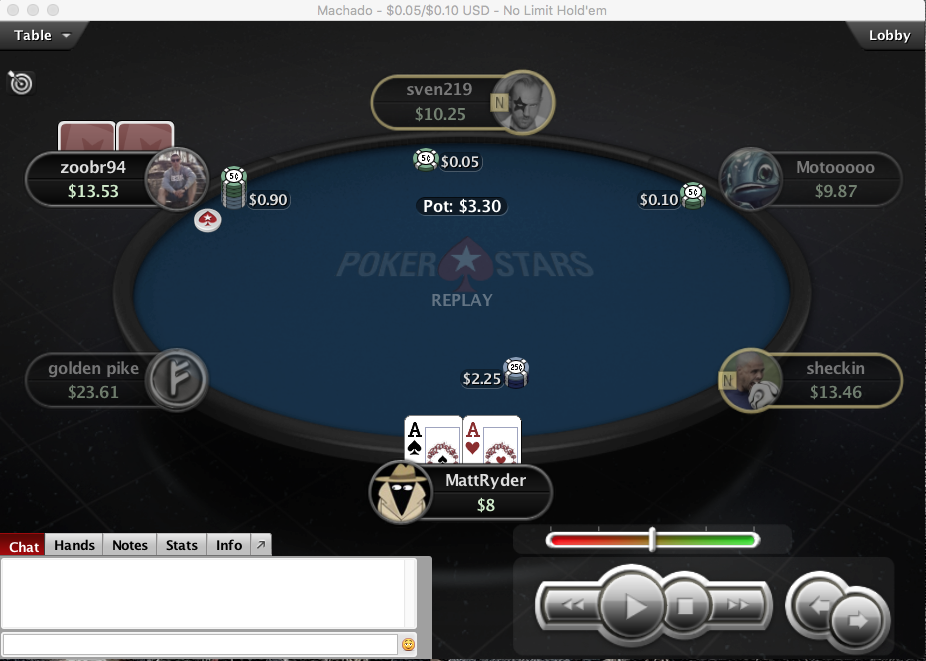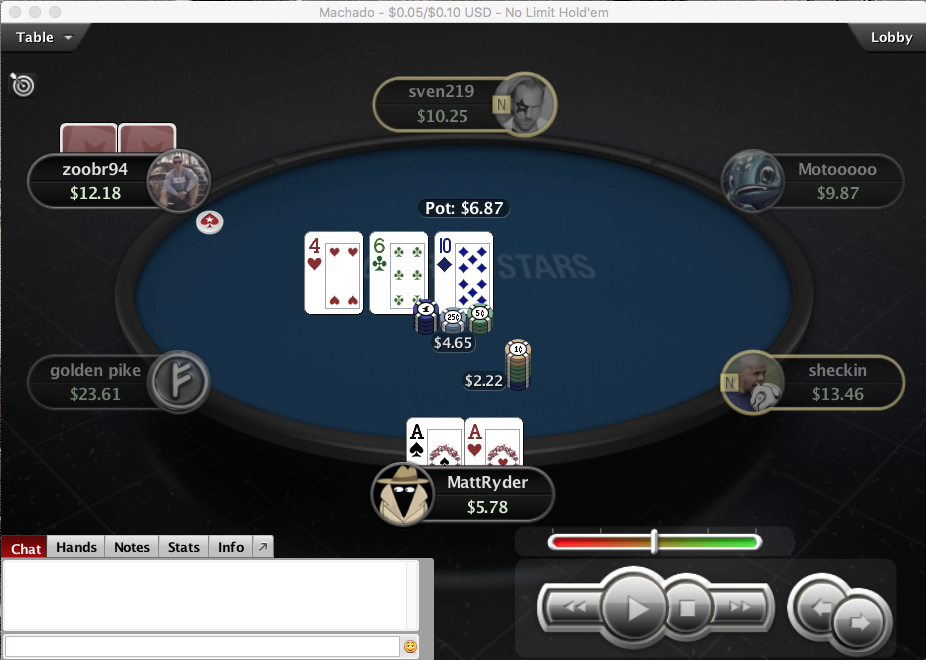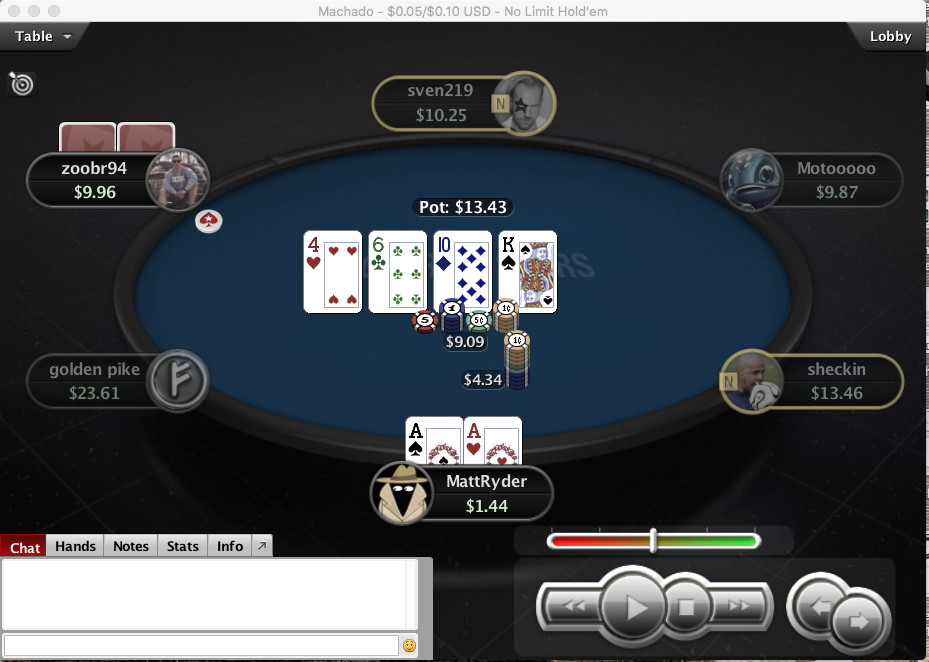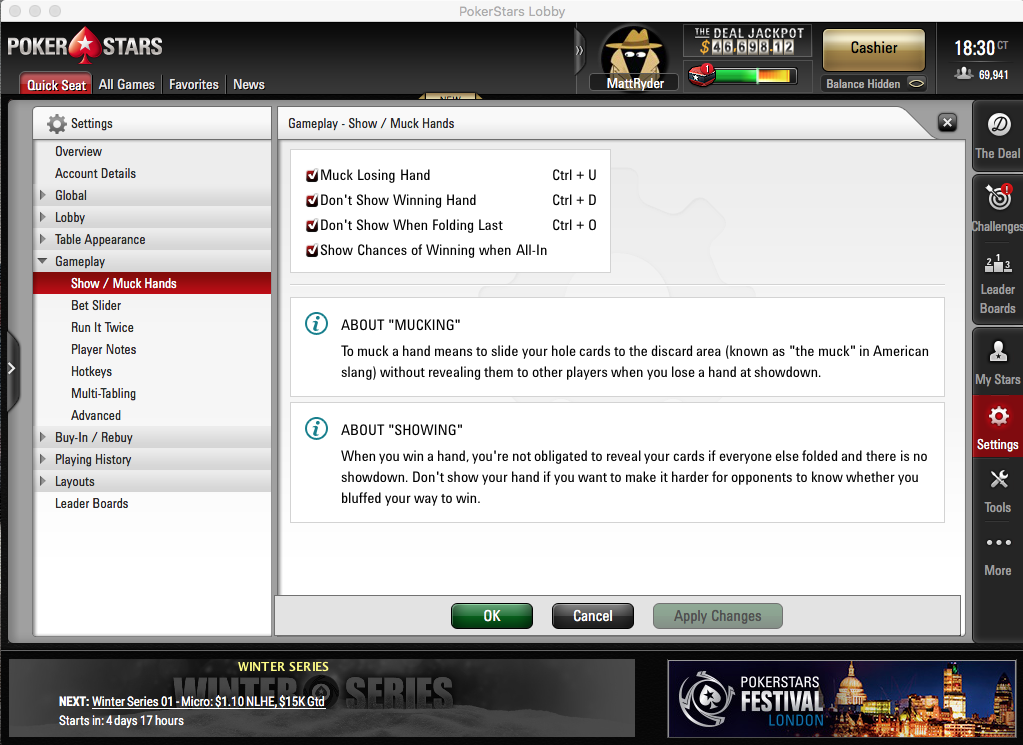Do NOT Slow-Play Monsters!
Beginners typically have problems with pre-flop monsters like AA or KK. They either over-bet them (even jamming pre-flop out of the blue), or they try to slow-play them. Both strategies often fail.
Jamming without any obvious reason (i.e., without aggression or resistance from other players) is a clear signal that you have a monster. Most of the time you'll be folded to (netting you just the blinds), but sometimes your all-in bet w/ KK will be called by AA. Neither scenario is what you were hoping for.
Don't get me wrong - you usually DO want to get all of the money in the middle pre-flop, if you can. But, you're much better off doing it in a more thoughtful and tactical way.
Slow-playing a monster on the other hand is truly a
mortal sin for beginners to make. It's a technique that you'll see the pros use
sometimes on TV, but I'm not a pro and you probably wouldn't be reading this if you were either. Slow-playing a monster allows more players to get into a hand for cheap (a BAD situation that could cost you a lot), or ends up netting you just peanuts when nobody likes the flop enough to put any real money in the pot.
Here's one example of how to play a monster like AA. In this case I hadn't been at the table very long. I'd won a few smaller hands without showing my cards so I knew that I had a bit of a loose table image. I opened AA with my usual 3X pre-flop bet. This was met by a 3-bet from the btn, exactly what I had hoped my loose image would solicit. I 4-bet (2.5X) which btn called pre-flop. It would have been nice if he had 5-bet me, so that we could have nicely gotten all-in, but he didn't.
On the flop I continued with a 1/2 pot c-bet, could have been up to 2/3 pot, perhaps should have been, but still pretty much what a seasoned player would expect from a pre-flop aggressor who is out of position and who might have totally missed the flop. He called.
I did the exact same thing on the turn, i.e., 1/2 pot c-bet. I could have gone all-in with the turn bet but I usually like to leave a little left over in my stack to give the impression that I may not be fully committed to my hand (which I am).
I didn't check the turn because a T and K on the board fit into hands that villain might be playing and I'm going to make him pay to see the river card.
Villain folded to my turn bet which
tells me that he was more likely playing the hand because of my loose (fishy?) image and his position, and less so because he might have had a great starting hand.
Regardless of the subtleties of how I played this hand versus what might be ideal, the point is that I did
NOT slow-play it. I netted approx. $4.20 on a hand that might have only netted me peanuts if I'd slow-played it, or worse still lost me a bunch of money.
Here's the whole hand on BoomPlayer:
https://www.boomplayer.com/26290486_D36D49E177









